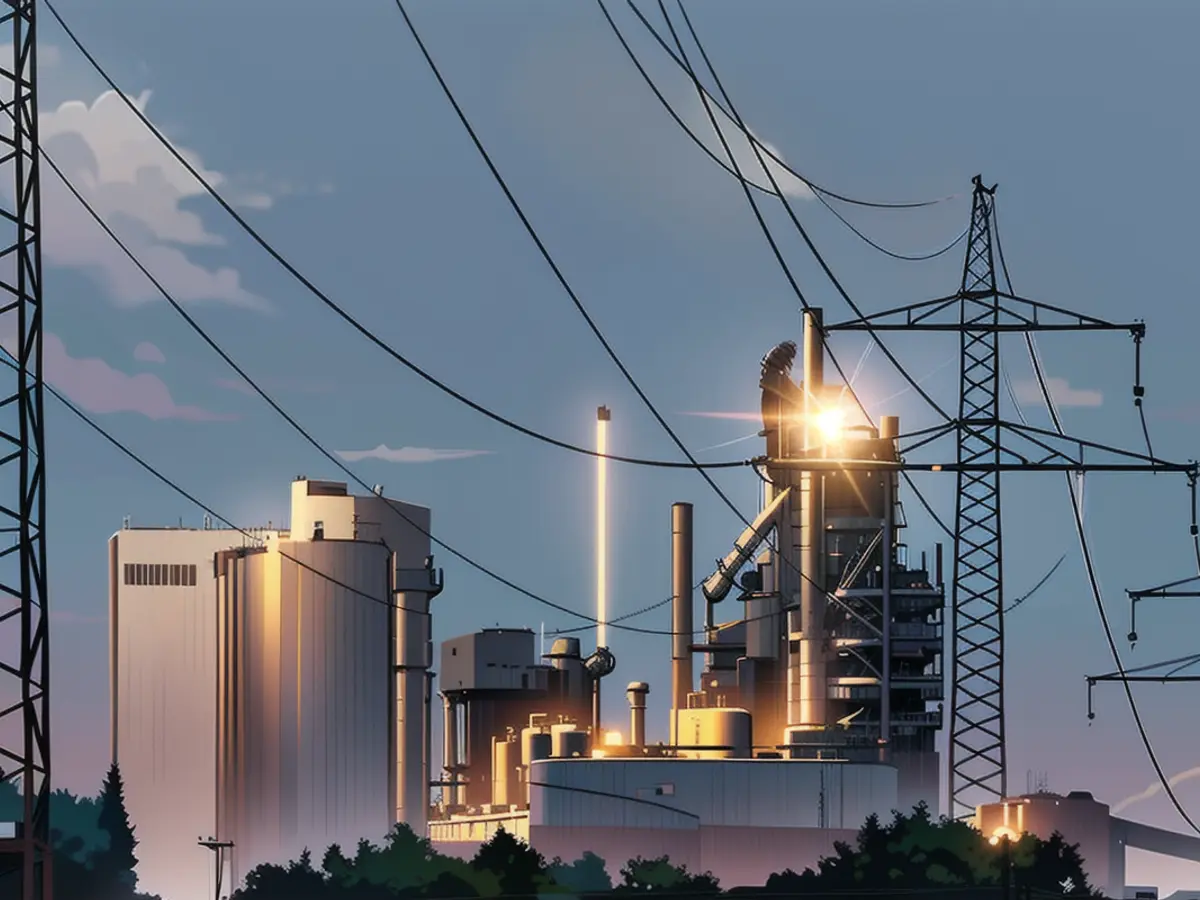Environmental change impacts, manifestation, and implications. - Federal government aims to facilitate CO2 storage in Germany.
The German government wants to make it legal to store carbon dioxide underground in an effort to reduce its impact on the environment. On Wednesday, the cabinet in Berlin approved a draft of the CO2 Storage Act, which is aimed at storing CO2 mainly in the North Sea. However, before it becomes law, both the German Parliament (Bundestag) and upper house of the German legislature (Bundesrat) must agree.
In February, the government revealed their plans for a Carbon Management Strategy, which was also supported by the cabinet. "It's better that CO2 is securely under the ground than in the air," said Federal Economics Minister Robert Habeck (Greens).
The government believes that CO2 storage is crucial for meeting climate targets. The technology would primarily be used to store emissions from industries like lime and cement production and waste incineration. But environmental groups are against this method. They argue that it's expensive and not really feasible on a large scale. "Nobody can predict how long the planned CO2 storage facilities will remain airtight," cautioned Greenpeace. If Habeck's CCS strategy fails, "we will be facing a climate policy mess," they said. CCS is a way of capturing and storing CO2.
The cabinet also approved a bill to help advance hydrogen projects. Hydrogen is seen as a promising alternative to fossil fuels in the transition to a greener energy system. "Hydrogen will play an important role in storing and transporting renewable energy," the draft says. "Hydrogen should be used particularly in sectors where it is not possible or economical to convert processes and procedures to carbon-neutral using direct electrification."
Some of the measures planned include faster planning and approvals for hydrogen projects. These would be treated like other energy transition initiatives and classified as "in the public interest," allowing for quicker decision-making. However, permission may take longer if water shortages could result from the construction of electrolysers that produce hydrogen. These machines use a lot of water, explained Habeck. "And as climate change progresses, we're starting to see that water could also become a scarce resource." If the water supply is at risk or if important climate-protection areas like wetlands, moors, and protected wetlands are involved, approval processes cannot be rushed.
The City Utilities Association VKU praised the hydrogen advancements but noted that the water protection regulations might still need some tweaking to prevent needlessly complicated approval procedures.
The Federal Ministry of Economics released a statement on hydrogen expansion. The ministry also released a statement on CO2 capture and storage.
Image: https://pixabay.com/photos/hydrogen-clean-energy-fuel-green-2975352/
Read also:
- Tough return to normality in snow and ice
- Fewer unauthorized entries: Domino effect through controls
- Trial against BND employee from mid-December
- Xhaka leads Leverkusen to triumph in cup tournament, scoring two goals.
- The Federal Government of Germany is pushing for the approval of the CO2 Storage Act, aiming to facilitate CO2 storage mainly in the North Sea.
- Robert Habeck, the Federal Economics Minister from the Greens party, supports the CO2 Storage Act, stating that it's better for CO2 to be securely under the ground than in the air.
- The German Environmental Association, like Greenpeace, has expressed concerns about the feasibility and cost-effectiveness of CO2 storage on a large scale.
- The Federal Government believes that CO2 storage is crucial for meeting climate targets, with industries like lime and cement production and waste incineration being primary sources of emissions.
- Hydrogen projects are also receiving support from the Federal Government, as they see hydrogen as a promising alternative to fossil fuels in the energy transition.
- The Federal Council will need to approve the CO2 Storage Act along with the Bundestag, before it can become law, as per the German legislative process.
- The Federal Ministry of Economics has released statements on both hydrogen expansion and CO2 capture and storage, emphasizing their importance in Germany's energy transition.
Source:








